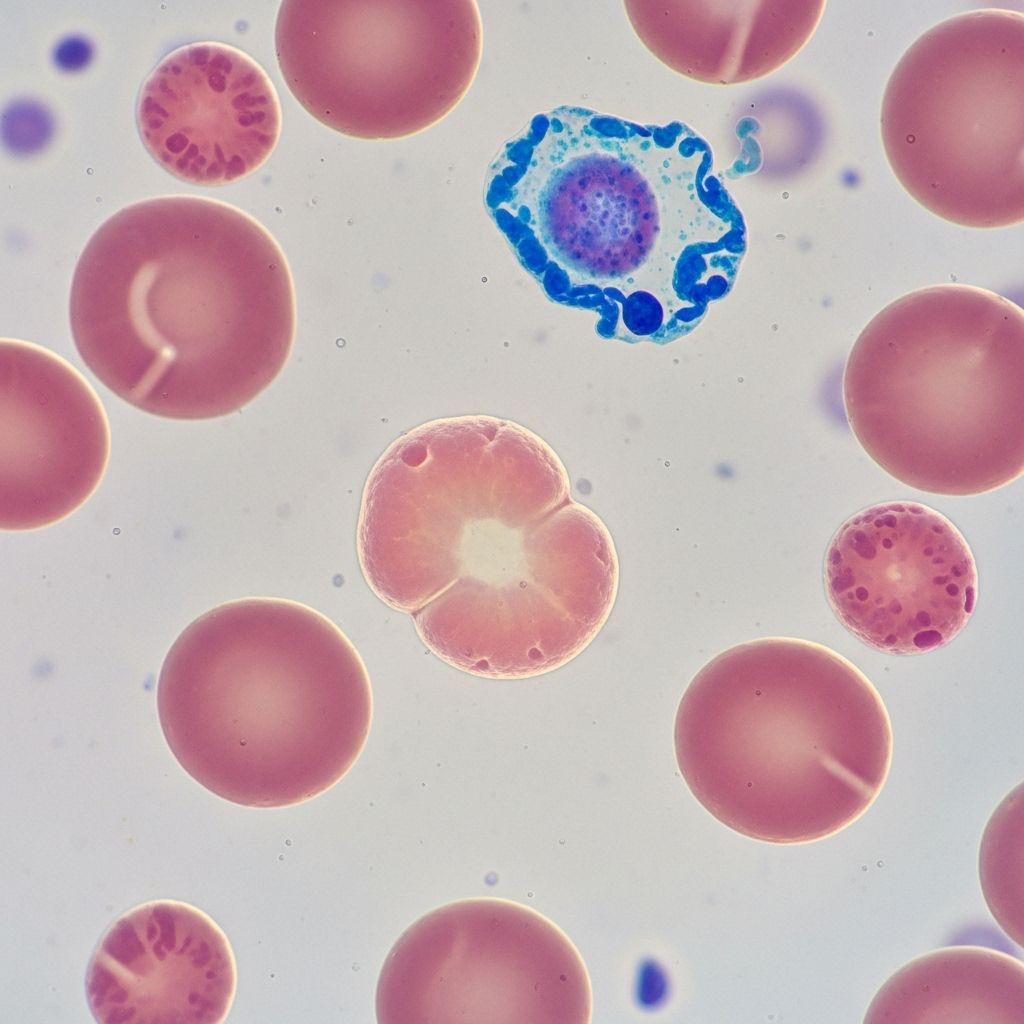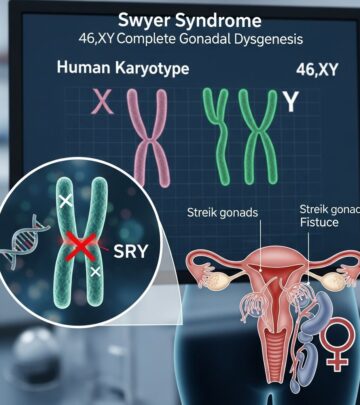Understanding Vitamin B12 Deficiency Anemia: Causes, Symptoms, Diagnosis, and Treatment
Explore the impacts, warning signs, and treatment options for vitamin B12 deficiency anemia and its effects on the body’s blood and nervous system.

Vitamin B12 Deficiency Anemia: Comprehensive Overview
Vitamin B12 deficiency anemia occurs when the body lacks sufficient vitamin B12, resulting in impaired production of healthy red blood cells. This condition can manifest gradually and lead to serious health complications if untreated. Understanding its causes, symptoms, diagnostics, treatment, and prevention is crucial for maintaining overall health.
What is Vitamin B12 Deficiency Anemia?
Vitamin B12 deficiency anemia is a type of anemia caused by insufficient vitamin B12 levels in the body. Red blood cells produced under these circumstances are often larger and dysfunctional, impairing their ability to transport oxygen efficiently throughout the body. This is medically termed megaloblastic anemia. Although diet can be a factor, issues with absorption are more commonly at fault, especially in older adults.
Vitamin B12, also known as cobalamin, is essential for DNA synthesis, red blood cell formation, and neurological function. Most individuals obtain vitamin B12 from animal-derived foods, but absorption is a complex process that can be disrupted by medical conditions or surgeries.
Functions of Vitamin B12 in the Body
- Red blood cell formation: Maintains the shape, structure, and function of red blood cells.
- Neurological function: Supports myelin sheath formation for nerve cells, impacting sensation and movement.
- DNA synthesis: Facilitates genetic material production required for cell division and growth.
- Energy metabolism: Aids in conversion of food into energy.
Symptoms of Vitamin B12 Deficiency Anemia
The symptoms of vitamin B12 deficiency anemia can be wide-ranging and will typically develop gradually, becoming more severe over time if left untreated. Some symptoms also affect the nervous system, even before anemia occurs.
Common symptoms include:
- Fatigue or weakness
- Shortness of breath
- Pale or jaundiced skin
- Heart palpitations or irregular heartbeat
- Dizziness or lightheadedness
- Loss of appetite or weight loss
- Diarrhea or digestive disturbances
- Swollen or sore tongue (sometimes red)
- Mouth ulcers
- Indigestion
- Headaches
Neurological symptoms (may occur even without anemia):
- Numbness or tingling in hands and feet
- Muscle weakness
- Psychological changes (depression, anxiety, confusion)
- Problems with memory, understanding, or judgment
- Difficulty walking, balance issues, and coordination problems
- Vision problems
- Pins and needles sensations
- Incontinence
Causes and Risk Factors of Vitamin B12 Deficiency
Vitamin B12 deficiency can result from several underlying causes, ranging from dietary choices to specific medical conditions affecting the body’s ability to absorb the nutrient. The most common includes:
Nutrition and Dietary Causes
- Low intake of animal products (meat, eggs, dairy – common in vegans/vegetarians)
- Poorly fortified diet or lack of supplements
Malabsorption Disorders
- Pernicious anemia: An autoimmune condition where the body attacks stomach cells needed to produce intrinsic factor, which is essential for B12 absorption in the intestines.
- Gastric surgeries (e.g., weight-loss surgery, removal of stomach/intestine sections): Decrease in intrinsic factor production and absorption area.
- Intestinal conditions: Crohn’s disease, celiac disease, certain types of intestinal infections (e.g., tapeworms from tainted fish).
- Use of acid-reducing medications: These (commonly prescribed for heartburn) lower stomach acid required to liberate B12 from food.
Other Risk Factors
- Older age (reduced stomach acid production)
- Family history of pernicious anemia or other autoimmune conditions
- Dialysis for kidney disease (increased need for B12 and folate)
- Alcohol abuse (can interfere with absorption)
| Cause | Explanation | Commonly Affected Groups |
|---|---|---|
| Dietary deficiency | Low intake of B12-containing foods | Vegans, older adults |
| Pernicious anemia | Autoimmune attack on stomach cells, loss of intrinsic factor | Women over 60, family history |
| Gastrointestinal surgery | Removal/resection reduces absorption ability | Patients with bariatric surgery |
| Crohn’s/Celiac disease | Inflamed/damaged intestines less able to absorb B12 | Chronic bowel disease patients |
| Medications | Acid-blockers reduce B12 absorption by lowering stomach acid | People on long-term heartburn therapy |
Diagnosis: Detecting Vitamin B12 Deficiency Anemia
Diagnosing vitamin B12 deficiency anemia requires a combination of clinical evaluation and laboratory tests. Symptoms alone are not definitive, as many overlap with other conditions.
Diagnostic Methods
- Comprehensive medical history and symptom review
- Physical examination, focusing on neurological signs and anemia
- Blood tests:
- Complete blood count (CBC): May show larger than normal red blood cells (megaloblasts)
- Serum vitamin B12 level
- Methylmalonic acid and homocysteine tests: Higher levels suggest B12 deficiency
- Intrinsic factor antibody test: Used to diagnose pernicious anemia
- Folate levels (since folate deficiency can cause similar symptoms)
Treatment Options for Vitamin B12 Deficiency Anemia
Vitamin B12 deficiency anemia is treatable, often with excellent outcomes if intervention is timely. Treatments are tailored based on the underlying cause.
Common Treatment Modalities
- Vitamin B12 supplementation: Oral tablets for mild deficiency or injections for severe cases or malabsorption issues.
- Addressing underlying conditions: Treating gastrointestinal diseases, adjusting medication that impedes absorption.
- Dietary changes: Increasing consumption of B12-rich foods (meat, dairy, eggs) and/or using fortified foods.
- Folate supplementation: If folate deficiency coexists.
In the case of pernicious anemia or significant absorption problems, lifelong intramuscular vitamin B12 injections may be necessary.
Prevention and Prognosis
Vitamin B12 deficiency anemia can often be prevented with adequate nutrition, supplementation, and prompt treatment of underlying medical issues.
- Maintain a balanced diet with animal-derived foods or fortified substitutes for vegans and vegetarians.
- Routine screening for individuals at risk (elderly, gastrointestinal disease, those on certain medications).
- Early detection and correction of deficiency will typically reverse most symptoms. Prolonged untreated deficiency, however, may lead to irreversible nerve damage or cognitive deficits.
Frequently Asked Questions (FAQ)
Q: What foods are highest in vitamin B12?
A: The richest sources include beef, liver, fish, eggs, dairy products, and shellfish. Vegetarians and vegans should consider fortified cereals and plant milks or vitamin B12 supplements.
Q: How quickly do symptoms resolve after starting treatment?
A: Many symptoms improve within days to weeks of beginning therapy. Neurological symptoms may take longer or, if untreated for prolonged periods, may not resolve fully.
Q: Can vitamin B12 deficiency cause permanent damage?
A: Yes, severe or chronic deficiency can lead to irreversible neurological changes and cognitive impairments if not addressed promptly.
Q: Is it possible to have B12 deficiency without anemia?
A: Yes. Individuals may develop neurological symptoms before anemia appears. Early detection is crucial.
Q: Who is most at risk for vitamin B12 deficiency?
A: Older adults, those with gastrointestinal disorders, post-weight-loss surgery patients, strict vegetarians/vegans, and people on long-term acid-reducing medications are at higher risk.
Key Points to Remember
- Vitamin B12 deficiency anemia is treatable and preventable.
- Symptoms may be subtle at first but can be severe over time.
- If you experience persistent fatigue, neurological symptoms, or unexplained anemia, seek medical advice and testing.
- Prevention starts with balanced nutrition and awareness of risk factors.
When to See a Doctor
Consult a healthcare provider if you experience symptoms of vitamin B12 or folate deficiency anemia such as persistent fatigue, numbness, balance problems, or cognitive changes. Diagnosis and treatment can often stop disease progression and reverse most effects, but early intervention is vital to prevent permanent damage.
Additional Resources
- Registered dietitian guidance for meal planning
- Support groups for pernicious anemia
- Educational materials from reputable health organizations
Read full bio of medha deb












